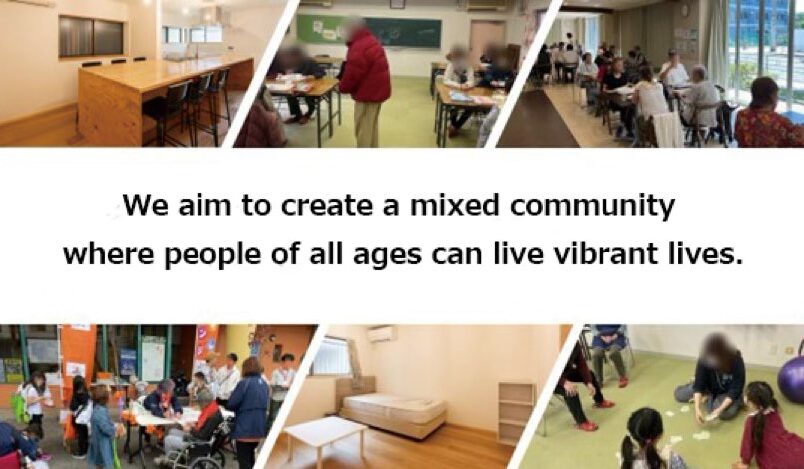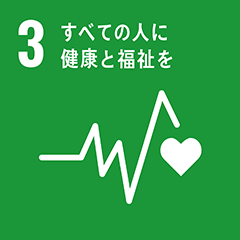Inochi Declaration
Create mixed communities where people of diverse generations can live vibrantly, ensuring that elderly and low-income residents in areas with a concentration of public housing do not become isolated.
Are you familiar with the current state of public housing in Japan?
Public housing provides affordable, high-quality living environments for low-income individuals and families who struggle to secure housing. National and local governments cover construction and other costs. Admissions are typically open to the public and are subject to income requirements. Rent is not fixed; it operates under a rent scheme that increases proportionally with income, based on the ability-to-pay principle. Unlike private rental housing, where outsourcing maintenance services incurs additional resident costs, public housing is managed on the principle of resident self-governance to avoid excessive burdens. This is the ideal operation of public housing.

A place to belong, a role to play, building connections
However, under the ability-to-pay principle, households that see an improvement in income tend to move out. Consequently, new tenants are mostly low-income individuals or those facing welfare challenges. As a result, the Ministry of Land, Infrastructure, Transport and Tourism (MLIT) disclosed that, in 2015, the elderly population (aged 60 or older) in public housing accounted for 60% of residents, and 80% of households had monthly incomes of 104,000 yen orless*1. This raises concerns such as “Who can manage the residents’ self-governance?” and “Who can take on the role of caretakers?” Furthermore, the number of foreign residents has increased in recent years, introducing language barriers.
In the northwestern area of Nishinari Ward, Osaka City, there are over 1,500 municipal housing units across 44 buildings.It is also a dense area of aging wooden houses, with very few private rental properties available for family households *2. Although Nishinari Ward promotes the motto “For the Children”*3, the overwhelming shortage of family-friendly housing makes it difficult to advance these initiatives. On the other hand, it is said that there are more than 500 “policy vacant units” in municipal housing in Nishinari Ward—vacant units being held back in preparation for rebuilding projects. If these units could be actively utilized for housing child-rearing families and young households struggling to find housing, it could bring hope to solving the shortage of self-governance leaders amid the aging resident population.
NICE Corporation*4, based in Nishinari Ward, has been working to develop family-friendly rental apartments and youth share houses repurposed from vacant homes in the dense residential area. Partnering with local organizations such as the Human Rights Welfare Association and Nishinari Rinpo-kan Yu-to-Ai, they have been providing support services such as consultations, community watch programs, and safe spaces, with the aim of building mixed communities. Utilizing this network, they advocate to the local government to allow organizations like NICE and these local groups to sublease the policy vacant units from the municipality and provide them as supported housing for young people and child-rearing households.
The Inochi Forum will collaborate with diverse local organizations to promote not only the physical development of such communities but also the soft aspects—such as comprehensive life consultations and residents’ association support. Through mixed community development in areas with concentrated public housing, we aim to create neighborhoods where elderly and low-income individuals do not become isolated.
[Notes]
*1 Ministry of Land, Infrastructure, Transport and Tourism, “About the Public Housing System” https://www.mhlw.go.jp/file/05-Shingikai-12201000-Shakaiengokyokushougaihokenfukushibu-Kikakuka/0000196081.pdf
*2 Osaka City, Redevelopment and Subsidy System for Dense Housing Areas https://www.city.osaka.lg.jp/toshiseibi/page/0000255852.html
*3 Nishinari Ward Operation Policy, FY2023
https://www.city.osaka.lg.jp/nishinari/page/0000601001.html
*4 NICE Corporation
https://nice.ne.jp/
[Action Platform]
Urban Development and Disaster Prevention / Diversity and Inclusion
[SDGs]



